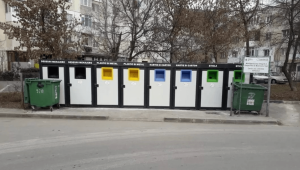
How many of us, who used or worked with a noxious substance, refused to throw it down the closet? How did those who hadn’t had such scruples look at the photos of dead fish found in Siret or Tisa?
The cyanide pollution which affected one of the most important Romanian rivers – Siret – and which was provoked by a Iasi-based private company represents the second important ecological accident of the last period
In January 2000, another accident drew the Westerners’ attention to us. A Baia Mare-based company, "Aurul SA", polluted Tisa with a large quantity of cyanides. Unlike Siret, Tisa is a river which gets out of Romania on its way to the Danube; even if the Siret case seems to be very mediatized, the Tisa pollution phenomenon provoked an European scandal.
In a period when Romanians’ most important activity is counting money and trying to live on an unsignificant salary, the care for nature can seem a trifle. However, the pragmatic European ministers allocate the environment protection very high percentages of their countries’ GDP. If the EU states allocate this field percentages amounting to 1-2% of the GDP, the Romanian governments have never subzidized the same area with more than 0.1-0.2%, which is a sum derived from a very small budget. Could our budget calculation be better than that of the EU states?
The analyses realized in Europe a few years ago, when pollution began being investigated from a critical point of view, indicated that a government would spend more money on solving the problems related to pollution itself than on the prevention of this phenomenon.
If an investment in a mechanism meant to filter the noxious substances produced by a factory is not immediately profitable because this type of machinery is very expensive, several calculations proved that the governemnt of the country where the factory is located would spend a much more important sum on the health problems derived from the pollution phenomenon. These problems do not necessarily refer to current intoxiactions, but to various forms of cancer engedered by pollution. The Westerners’ calculations, which are generally focused on periods of more than four years, indicated that it was much cheaper to prevent this phenomenon.
Unfortunately, environment protection has never represented a governmental priority in Romania. What is really surprising is that EU offers us huge funds in order to do something in this field, but we are not able to devise credible programs in order to get at least 30% of these sums of money. Environment protection represents a field to which Westerners pay much attention, because the problems of the countries which are just candidates can affect the health of the EU citizens.
It is not understandable why the peasants who live near Siret simply ignored the authorities’ warnings and continued to eat infested fish even after having found out the risks they were running while doing that. This attitude was generated either by ignorance or by the contempt towards authorities.
But what is to appreciate is the press’ and the public opinion’s very rapid reaction; they reacted faster than in the Tisa pollution case.
Last year, that item of news had not been noticed until the scandal reached Brussels, due to Hungary. It was only then that many Romanians realized that something grave was happening, even if some of them continued to think that the Hungarians’ influence on EU was completely negative.
But we cannot accept the fact that the government hasn’t made up a minimum program meant to inform the people of the pollution-related risks. Neither can we accept the fact that we do not have a national plan meant to diminish pollution. And such a thing would be very useful, not only because it protects our health, but because it could also increase our national budget.
(Claudiu RAUS)






















